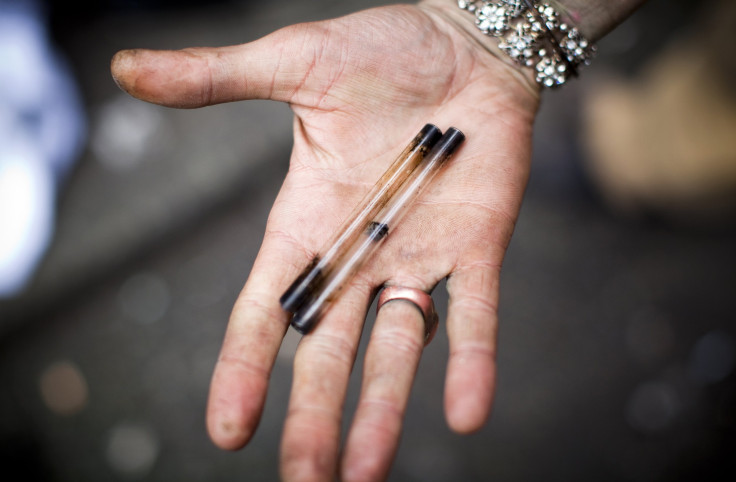Meth Addicts May Soon Get Crutch For Recovery; Antibody-Making Medicine Makes Drug Use Pointless

You may know about methamphetamine from the popular TV series Breaking Bad. Blue Sky, which is the name of Walter White’s 99.1 percent chemically pure crystal meth, may be fictional, but its effects are all too real. In the U.S., 12 million people have used meth — sometimes called ice, chalk, and crank — at least once, and about 440,000 use it regularly. Addicts who try to quit often find that the withdrawal symptoms are unbearable, and subsequently fall back into using. A new medication, however, may be able to help them, by blocking the drug’s effects on the brain. If it does nothing, users won’t use it.
The white crystalline drug may just be one of the worst drugs out there. No matter the reason someone tries it, almost everyone falls into the same cycle of addiction. Using it causes a rush of the neurotransmitter dopamine to the brain. The feel-good molecule, though it’s released with every drug, including alcohol, is released in even higher amounts when using meth. Whereas sex ups dopamine levels by 100 to 200 units, and cocaine induces an increase of about 350 units, meth releases up to 1,250 units, Frontline reported. Because of this, it’s no wonder regular users’ dopamine receptors are shot, forcing them to find their next high just to feel good.
Researchers at the University of Arkansas for Medical Sciences believe that saving these receptors from the effects of meth will help recovering addicts stay away from their pipes or syringes. Their study utilized a medication with adeno-associated viruses (AAVs), nonpathogenic viruses that can be used as transporters, or vectors, for delivering genetic material. They used a medication based on AAVs to deliver genes that would produce antibodies to meth, forcing it away from the brain’s dopamine receptors. After giving mice an initial dose of the medication and then another one 50 days later, and testing the effect of meth on them, the researchers found it was effective in isolating meth in the blood.
“The goals of this project are to integrate antibody engineering and gene therapy technology to generate a long-acting antibody-based medicine that will both protect patients from relapse to meth use and minimize treatment failures associated with long-term patient compliance,” lead researcher Dr. Eric Peterson said in a statement.
Meth causes chemical changes in the brain altering motor control, causing spasms, twitching, and ticks. But the psychiatric problems it switches on may be the most damaging. Paranoia, obsessive compulsive behavior, memory loss, hallucinations, aggression, and depression are common. The drug alters the brain so much that it becomes more difficult with each hit to find pleasure in regular life, so a user goes back for more. And yet, none of this even covers the physical effects of meth (ever heard of “meth mouth” or “crank bugs?”).
With all these effects, it’s no surprise it’s difficult to treat the addiction. Though many of these problems may heal over time, the problem is that it will take some time. A 2009 study found that recovering cognitive processes after meth use could take a year or more, as control of impulses and attentional focus must be learned all over again. For people whose brains have been trained to crave immediate satisfaction, this can be especially frustrating.
More researchers are now looking at AAV-based therapeutics and vaccines to help meth addicts recover more easily. As evidence builds that they’re effective, maybe meth addicts will see that life can be pleasurable without the high.
Source: Peterson E, et al. At The 2014 American Association of Pharmaceutical Scientists Annual Meeting and Exposition. 2014.



























